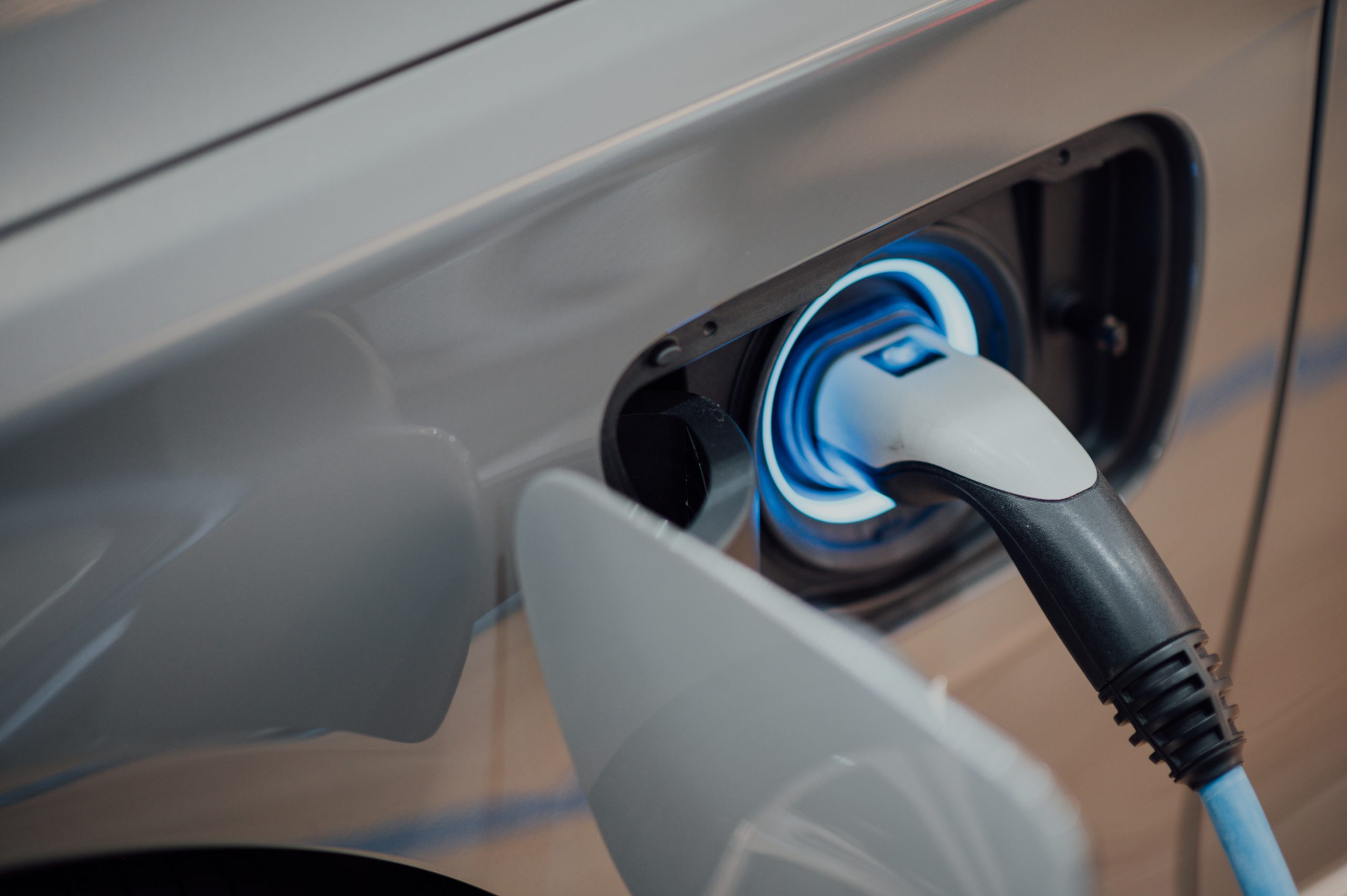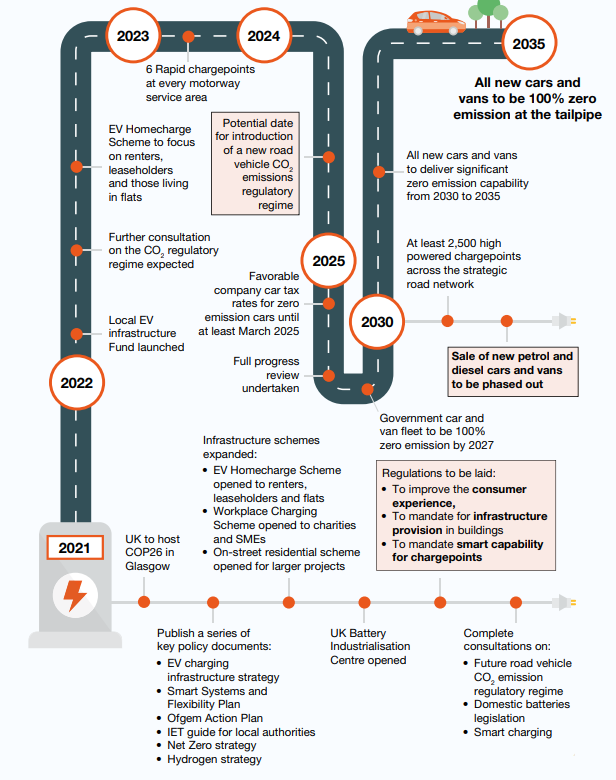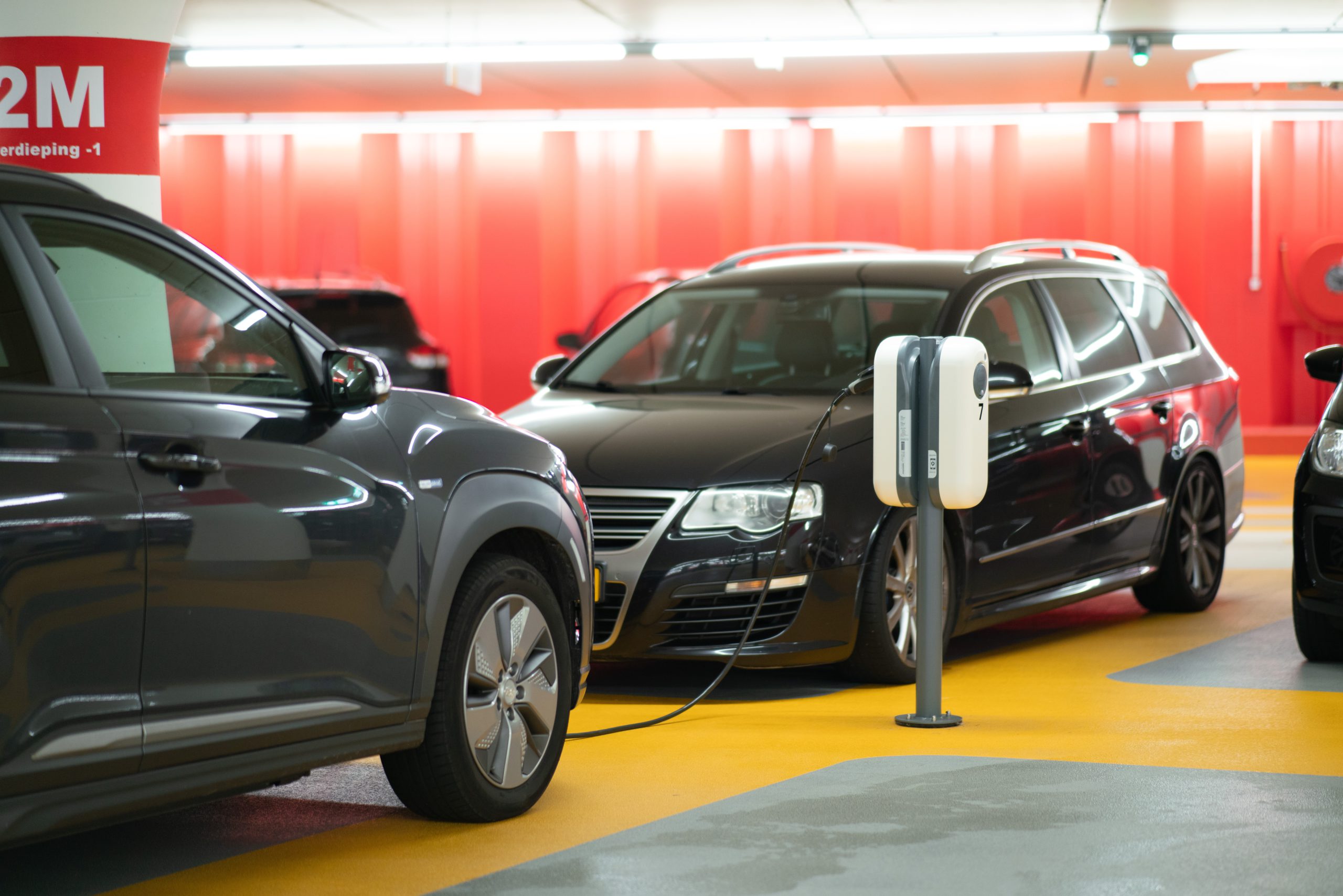Electric vehicles: Is your business prepared?

Plans for electric vehicles
Cast your minds back to 2020 and you may remember the Prime Minister announced that the UK is being put on course to be the fastest nation in the G7 to decarbonise cars and vans. In doing so, all new petrol and diesel cars and vans will be phased out by 2030.
This process includes:
- The end of the sale of all new petrol and diesel cars and vans by 2030
- All new cars and vans must be fully zero-emission at the tailpipe by 2035
- £2.8billion package to support the phase-out dates
Whilst 2030 may seem years away (literally), this actually offers limited time for businesses to get their fleets in order.
And in the meantime, the project shows no sign of slowing down. The market share of zero-emission vehicles continues to rise and £billions of private investment is being pledged globally to manufacture electric vehicles, their batteries, and to provide charge point and energy infrastructure.
To help you visualise the journey to electric vehicles, here is a handy diagram:
Source: HM Government – Transitioning to zero emission cars and vans: 2035 delivery plan
Benefits of electric vehicles
So why is the government implementing this ambitious plan? And what are the benefits to businesses?
Environmental benefits
First and foremost are the environmental benefits of electric vehicles due to the reduction in fossil fuel vehicles.
One electric car can save 1.5 million grams of C02 energy. That’s the equivalent of four return flights from London to Barcelona.
Lower running costs
Charging an electric vehicle could cost just a fraction of the fuel spend. The Advisory Electricity Rate for fully electric cars is 5p per mile. Considerably less than the smallest petrol or diesel engine.
Government incentives
The government is implementing a range of incentives and tax benefits for businesses that use electric vehicles and vans. Read on to find out more.
Electric vehicle incentives
Incentives may be one of the benefits which caught your eye, and rightly so.
Here’s a round-up of government incentives and tax benefits which will be offered to businesses.
Plug-in car grant
This grant offers up to £1,500 off the cost of an eligible vehicle (or 35% of the purchase price, whatever is lower)
Plug-in grant for vans or trucks
Large vans are eligible for a grant of up to £5,000, whilst trucks are eligible for up to £16,000 (or 35% of the purchase price, whatever is lower)
Electric Vehicle Homecharge Scheme
The OLEV grant pays up to 75% (capped at £350 including VAT) of the cost of home charge point and installation.
Workplace Charging Scheme
Via OLEV, businesses can also install up to 40 sockets, with the grant providing £350 per socket towards the cost. With a maximum grant of £14,000
Congestion charge
Electric vehicle owners will not have to pay the congestion charge in London, which is £11.50 per day.
ULEZ
Also in London, electric vehicle owners will not have to pay the ULEZ charge of £12.50 a day, and there are similar ULEZ schemes planned for Birmingham, Manchester, Bristol, Bath, and Oxford.
Vehicle exercise duty
100% electric vehicles are currently exempt from Vehicle Exercise Duty (VED).
Charging points
Charging points are of particular interest to many businesses. And one of the reasons many are hesitant to invest in an electric fleet.
However, this is an area that the government and relevant businesses are rapidly investing in. As mentioned, the Electric Vehicle Homecharge Scheme and OLEV will contribute towards charging points both at home and at business premises.
But what else is being implemented?
Rapid charge points
More rapid charge points are being introduced throughout the UK. This network allows faster and more efficient charging of electric vehicles, usually taking 20 minutes to get an 80% charge. This is ideal for long-distance vehicle drivers or those on the move.
Motorway service areas
By 2024, the government is planning to have implemented 6 Rapid Chargepoints at every motorway service area.
Industry leaders
Many industry leaders such as BP and Shell have also pledged to increase the amount of charge points and Rapid Chargepoints that they offer by 2030, many of which plan to reach their targets even sooner.
The revolution has begun
However, the electric charge point revolution has already begun.
As of April 2021, there are 22,790 public electric vehicle charging devices in the UK, of which 4,259 are rapid chargers.
In fact, you are never more than 25 miles away from a rapid charge point anywhere along England’s motorways and major A roads.
What’s next?
At MaxOptra, we’re taking the transition to electric vehicles seriously. So keep an eye on our blog for the latest news and advice. As well as updates on how we will be supporting electric fleets through advances in the MaxOptra system.
Alternatively, get in touch with our team of experts to learn how MaxOptra can streamline your delivery operations. Alternatively, check out other trends in the industry in our 2022 delivery and logistics trends report, or our other content on electric vehicles.
Maxoptra System
© MaxOptra, 2023. Privacy Policy and Cookies



